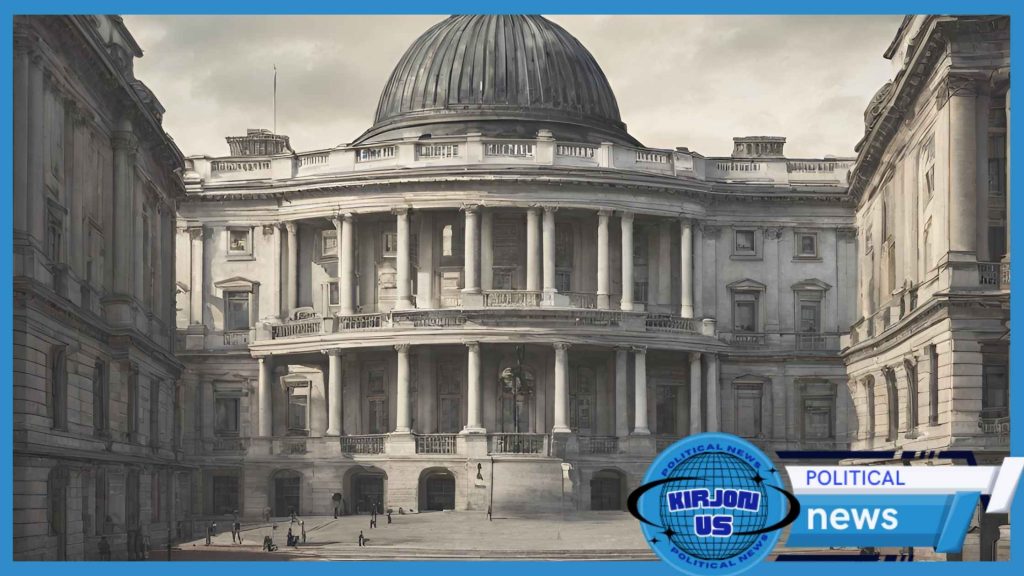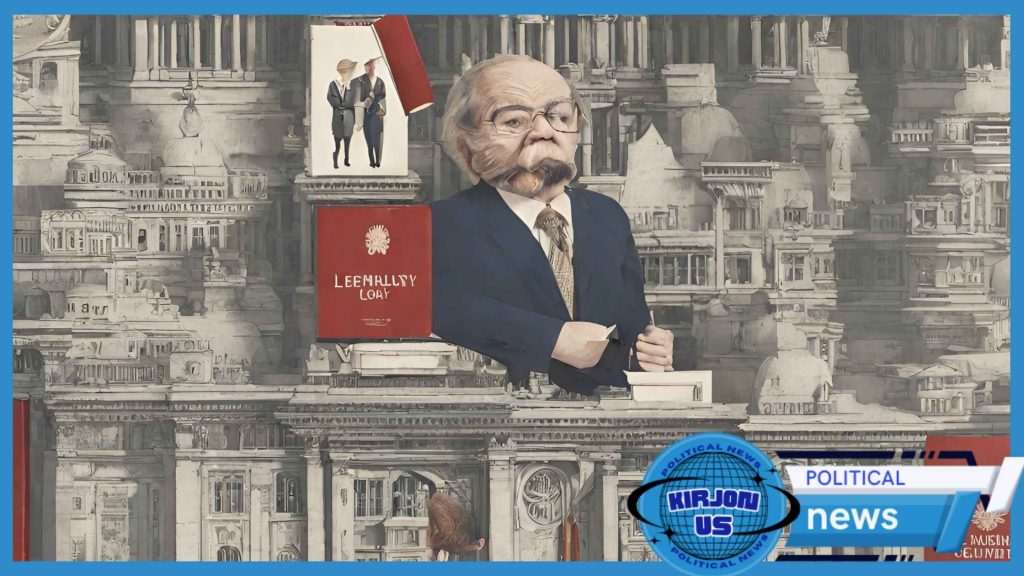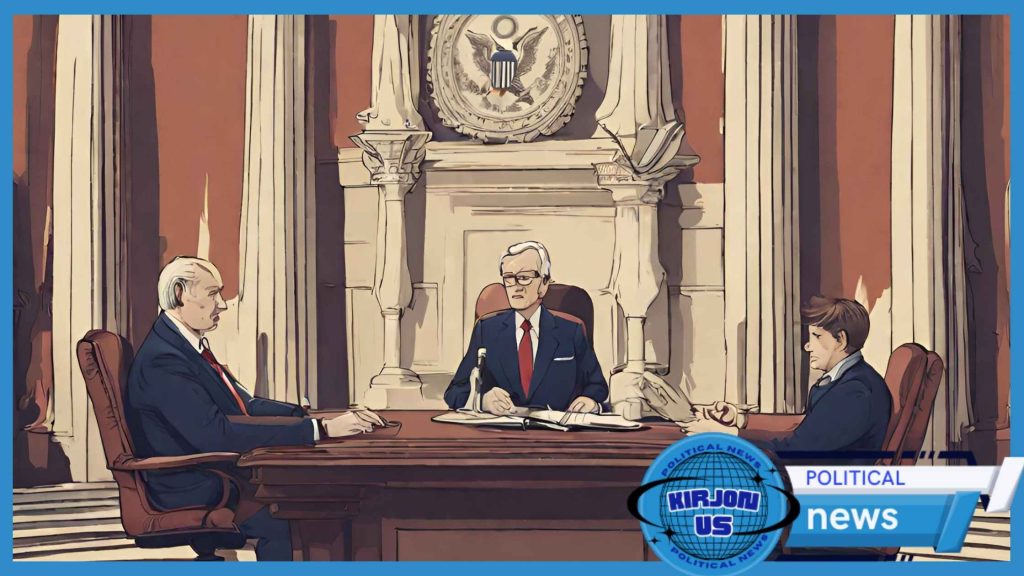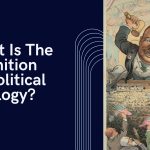In understanding the democratic ideology of the United States, it is essential to first grasp the concept of democracy itself. At its core, democracy is a form of government in which power is vested in the people, who exercise it directly or through elected representatives. This ideology champions the principles of equality, liberty, and justice for all citizens. Throughout history, the United States has been a shining example of democratic governance. The roots of American democracy can be traced back to the founding principles articulated in the Declaration of Independence, where Thomas Jefferson famously wrote, “We hold these truths to be self-evident, that all men are created equal, that they are endowed by their Creator with certain unalienable Rights, that among these are Life, Liberty, and the pursuit of Happiness.”
The Founding Fathers, inspired by Enlightenment ideals, sought to establish a government that would protect the natural rights of its citizens and ensure their representation in decision-making processes. This vision materialized in the drafting of the United States Constitution, a seminal document that outlines the structure of the federal government and delineates the powers and responsibilities of its branches.
Embedded within the Constitution are principles that reflect the democratic ideology of the United States. The concept of popular sovereignty, which asserts that the authority of the government is derived from the consent of the governed, underpins the entire framework of American democracy. Additionally, the system of checks and balances, which distributes power among the legislative, executive, and judicial branches, serves as a safeguard against tyranny and ensures accountability.
Moreover, the Bill of Rights, the first ten amendments to the Constitution, enshrines fundamental freedoms such as freedom of speech, religion, and assembly, further solidifying the democratic ethos of the nation. These foundational documents lay the groundwork for democratic governance in the United States and continue to shape its political landscape to this day.
In essence, the democratic ideology of the United States is rooted in the belief that every individual possesses inherent rights and deserves equal opportunity and representation within the government. It is a commitment to fostering a society where the voices of the people are heard, their freedoms are protected, and their interests are served. Throughout its history, the United States has strived to uphold these democratic principles, evolving and adapting to the ever-changing needs and challenges of its populace.
Foundations of American Democracy

Declaration of Independence
The Declaration of Independence, adopted on July 4, 1776, serves as the bedrock of American democracy. Crafted by Thomas Jefferson and ratified by the Continental Congress, this historic document boldly proclaimed the thirteen American colonies’ independence from British rule. It articulated the fundamental principles upon which the new nation would be founded, including the notion that “all men are created equal” and endowed with “certain unalienable Rights.” The Declaration of Independence not only declared independence but also laid the philosophical groundwork for democratic governance by asserting the right of self-determination and the legitimacy of popular sovereignty.
Constitution and its Principles
Following the Revolutionary War, the framers of the United States Constitution convened in Philadelphia in 1787 to draft a governing framework that would replace the ineffective Articles of Confederation. The result was the Constitution of the United States, a groundbreaking document that established the structure and functions of the federal government. At its core, the Constitution embodies democratic principles such as the separation of powers, federalism, and the rule of law. It outlines the powers and limitations of each branch of government—the legislative, executive, and judicial—ensuring a system of checks and balances to prevent the concentration of power in any one branch.
Bill of Rights
To address concerns about individual liberties and safeguard against potential abuses of power by the federal government, the framers of the Constitution added the Bill of Rights, comprising the first ten amendments. Ratified in 1791, these amendments enumerate specific rights and freedoms that are protected from government infringement, including freedom of speech, religion, and the press, as well as the right to bear arms and due process of law. The Bill of Rights serves as a cornerstone of American democracy, guaranteeing essential civil liberties and ensuring that the government remains accountable to the people it serves.
Key Democratic Values in the United States

Equality
Equality lies at the heart of the democratic ideology of the United States. The principle of equality asserts that all individuals, regardless of race, gender, religion, or socioeconomic status, are entitled to fair and equal treatment under the law. This foundational value is enshrined in the Declaration of Independence, which proclaims that “all men are created equal” and endowed with certain unalienable rights. Throughout American history, the struggle for equality has been a central theme, marked by movements such as the abolition of slavery, the fight for civil rights, and ongoing efforts to combat discrimination in all its forms.
Liberty
Liberty, or the freedom to act and think as one chooses, is another fundamental democratic value cherished by the United States. The concept of liberty is closely intertwined with the idea of individual rights and autonomy. Americans value their freedom to express themselves, worship according to their beliefs, and pursue their own paths in life without undue interference from the government or other entities. The Bill of Rights explicitly protects various freedoms, including freedom of speech, religion, assembly, and the press, reflecting the nation’s commitment to upholding liberty as a core democratic principle.
Justice
Justice is the principle of fairness and impartiality in the administration of laws and the protection of rights. In a democratic society, justice ensures that all individuals are treated equitably before the law and have access to due process and legal recourse. The American legal system is founded on the principle of justice, with courts and legal institutions tasked with upholding the rule of law and ensuring that justice is served. However, achieving justice is an ongoing endeavor, and the United States continues to grapple with issues such as systemic inequality, disparities in access to justice, and the need for criminal justice reform to address issues of racial bias and inequity.
Democratic Institutions

Separation of Powers
The concept of the separation of powers is a cornerstone of American democracy, designed to prevent the concentration of power in any single branch of government. As outlined in the Constitution, the federal government is divided into three co-equal branches: the legislative, executive, and judicial branches. Each branch has distinct powers and responsibilities, ensuring a system of checks and balances where no branch can dominate or abuse its authority. The legislative branch, represented by Congress, is responsible for making laws; the executive branch, led by the President, is tasked with enforcing laws; and the judicial branch, embodied by the Supreme Court and lower courts, interprets laws and resolves disputes. This division of powers ensures accountability, protects against tyranny, and fosters a balance of authority within the government.
Checks and Balances
In addition to the separation of powers, the American system of government relies on checks and balances to prevent any one branch from becoming too powerful. Each branch of government has the ability to check the actions of the other branches, thereby ensuring accountability and protecting against abuses of power. For example, Congress can pass laws, but the President has the power to veto legislation; however, Congress can override a presidential veto with a two-thirds majority vote. Likewise, the President appoints federal judges, but those appointments must be confirmed by the Senate. The judiciary, meanwhile, has the authority to review the constitutionality of laws passed by Congress and actions taken by the executive branch, providing an essential check on the exercise of governmental power.
Electoral System
The electoral system is another critical democratic institution that ensures the representation of the people in government. In the United States, elections are held at regular intervals to choose representatives at the federal, state, and local levels. The principle of “one person, one vote” underscores the democratic ideal of political equality, where each citizen’s vote carries equal weight in the electoral process. Elections serve as a mechanism for expressing popular will, holding elected officials accountable, and peacefully transferring power from one administration to the next. Moreover, the United States employs a system of representative democracy, where elected officials serve as proxies for the interests and preferences of their constituents, further enhancing the democratic legitimacy of the government.
Role of Citizens in Democracy
Voting Rights
Voting is not only a fundamental right but also a civic duty in a democratic society like the United States. The ability to participate in free and fair elections is essential for citizens to have a voice in shaping the direction of their government and society. Over the course of American history, the expansion of voting rights has been a continual struggle, marked by movements to eliminate barriers such as property ownership requirements, racial discrimination, and gender exclusions. Today, voting rights are protected by federal laws such as the Voting Rights Act of 1965, which prohibits discriminatory voting practices, and the Twenty-Sixth Amendment, which lowered the voting age to 18. However, challenges such as voter suppression, gerrymandering, and restrictive voting laws persist, underscoring the ongoing importance of safeguarding and expanding access to the ballot box for all citizens.
Civic Engagement
Beyond casting ballots, civic engagement encompasses a broad range of activities through which individuals participate in the democratic process and contribute to the well-being of their communities. This can include volunteering for political campaigns, attending public meetings, joining advocacy groups, and participating in protests or demonstrations. Civic engagement fosters a sense of civic responsibility and empowers citizens to actively shape public policies and decisions. Moreover, it strengthens the social fabric of society by promoting dialogue, cooperation, and collective action. In the United States, civic engagement is encouraged and celebrated as an integral part of democratic citizenship, reflecting the belief that an informed and engaged citizenry is essential for a vibrant and robust democracy.
Responsibilities of Citizens
Alongside rights, citizens in a democracy also bear certain responsibilities to uphold the principles of democratic governance and contribute to the common good. These responsibilities may include staying informed about current events and issues, participating in community activities, obeying laws, paying taxes, serving on juries when called upon, and respecting the rights and opinions of others. By fulfilling these duties, citizens help sustain the democratic process, promote social cohesion, and ensure the continued vitality of democratic institutions. Moreover, active and responsible citizenship is essential for addressing challenges facing society, from tackling inequality and injustice to safeguarding the environment and promoting social progress. As such, citizenship in a democracy is not merely a passive status but an active and ongoing commitment to the principles of democracy and the welfare of the nation.
Evolution of Democratic Ideals

Suffrage Movements
The evolution of democratic ideals in the United States has been marked by ongoing struggles to expand political participation and ensure equal rights for all citizens. One pivotal aspect of this evolution has been the fight for suffrage, or the right to vote. Historically, suffrage in the United States was limited primarily to white male property owners. However, over time, various movements emerged to challenge these restrictions and extend voting rights to previously disenfranchised groups. The women’s suffrage movement, for example, fought tirelessly for decades to secure the right to vote for women, culminating in the passage of the Nineteenth Amendment in 1920. Similarly, the civil rights movement of the 1950s and 1960s sought to dismantle racial segregation and discrimination, leading to the passage of landmark legislation such as the Voting Rights Act of 1965, which aimed to eliminate barriers to voting for African Americans.
Civil Rights Movement
The civil rights movement represents a significant chapter in the evolution of democratic ideals in the United States. Led by visionary leaders such as Martin Luther King Jr., Rosa Parks, and John Lewis, this grassroots movement sought to end racial segregation and discrimination and secure equal rights and opportunities for African Americans. Through nonviolent protests, marches, and acts of civil disobedience, activists challenged the status quo and demanded justice and equality under the law. The civil rights movement achieved several historic victories, including the desegregation of schools, the passage of civil rights legislation, and the recognition of voting rights for African Americans. These accomplishments not only expanded democratic rights and freedoms but also inspired subsequent movements for social justice and equality.
Contemporary Challenges
Despite progress in expanding democratic ideals, the United States continues to grapple with contemporary challenges that threaten to undermine the principles of democracy. Issues such as voter suppression, partisan gerrymandering, and the influence of money in politics pose significant barriers to political participation and representation. Moreover, systemic inequalities based on race, gender, income, and other factors persist, undermining the promise of equal opportunity and justice for all citizens. In the face of these challenges, ongoing efforts are needed to protect and strengthen democratic institutions, promote inclusive and equitable governance, and uphold the values of democracy for future generations.
Critiques of Democratic Ideology
Inequality
One of the primary critiques of democratic ideology in the United States is its failure to address systemic inequality effectively. Despite the democratic principles of equality and justice, disparities based on race, gender, socioeconomic status, and other factors persist in American society. Critics argue that the democratic system often perpetuates and exacerbates these inequalities, as wealth and power become concentrated in the hands of a privileged few. Economic inequality, in particular, has been on the rise, with a widening wealth gap between the rich and the poor. Moreover, structural barriers such as unequal access to education, healthcare, and employment opportunities further entrench inequality and hinder social mobility. Addressing these inequalities requires not only policy reforms but also a fundamental reexamination of the underlying structures of power and privilege in society.
Political Polarization
Another critique of democratic ideology is the increasing political polarization and partisan gridlock that plague the American political system. In recent years, political discourse has become increasingly divisive and polarized, with ideological differences leading to deepening divisions and gridlock in Congress and other governing bodies. Partisan politics often prioritize party loyalty over the common good, leading to legislative stalemates and an inability to address pressing issues facing the nation. Critics argue that this polarization undermines the functioning of democracy by impeding compromise, fostering distrust in government institutions, and eroding public confidence in the democratic process. Addressing political polarization requires fostering a culture of collaboration, empathy, and mutual respect across ideological divides, as well as reforming electoral processes to encourage greater participation and representation of diverse perspectives.
Role of Money in Politics
The influence of money in politics is another significant critique of democratic ideology in the United States. Critics argue that the outsized influence of wealthy individuals, corporations, and special interest groups undermines the democratic principle of political equality and distorts the policymaking process. The proliferation of campaign finance laws and regulations has led to the rise of super PACs, dark money, and other forms of political spending that allow wealthy donors to wield disproportionate influence over elections and policymaking. As a result, elected officials may prioritize the interests of wealthy donors over the needs and concerns of ordinary citizens, leading to a system of “plutocracy” rather than democracy. Campaign finance reform and efforts to increase transparency and accountability in political spending are essential steps toward addressing the corrosive influence of money in politics and strengthening democratic ideals of fairness and representation.
Democracy in Practice
Democratic Governance
In practice, democracy in the United States operates through a system of representative democracy, where elected officials represent the interests and preferences of their constituents. At the federal level, the government is structured according to the principles outlined in the Constitution, with power divided among the legislative, executive, and judicial branches. The President, elected every four years, serves as the head of state and commander-in-chief of the armed forces, while Congress, consisting of the Senate and the House of Representatives, is responsible for making laws and overseeing the federal budget. The judiciary, headed by the Supreme Court, interprets the Constitution and resolves disputes according to the rule of law. At the state and local levels, similar systems of governance exist, with elected officials responsible for enacting laws and providing essential services to their constituents.
Political Parties and Elections
Political parties play a central role in the democratic process in the United States, serving as vehicles for organizing and mobilizing voters, articulating policy positions, and nominating candidates for public office. The two major parties, the Democratic Party and the Republican Party, dominate the political landscape, but third-party and independent candidates also compete in elections. Elections are held at regular intervals to choose representatives at the federal, state, and local levels, including the President, members of Congress, governors, state legislators, and local officials. The electoral process includes primary elections, caucuses, and general elections, where voters cast their ballots to select their preferred candidates. Additionally, initiatives and referendums allow voters to directly influence public policy by proposing and voting on specific measures.
Decision-Making Processes
In a democracy, decision-making processes involve a combination of deliberation, negotiation, and compromise among elected officials, interest groups, and the public. The legislative process, for example, requires collaboration and consensus-building among lawmakers to draft, debate, and pass legislation that reflects the diverse interests and values of the electorate. Public hearings, town hall meetings, and other forms of civic engagement provide opportunities for citizens to voice their opinions, express concerns, and influence decision-making. Moreover, the media plays a crucial role in informing the public about political issues, holding elected officials accountable, and facilitating public discourse. While democratic decision-making can be messy and contentious, it ultimately reflects the collective will of the people and ensures that government policies and actions are grounded in democratic principles of transparency, accountability, and responsiveness to the needs of the citizenry.
Impact of Democratic Ideology
Social Progress
Democratic ideology has played a significant role in driving social progress and advancing civil rights and liberties in the United States. Throughout history, democratic principles such as equality, liberty, and justice have inspired movements for social change, leading to the abolition of slavery, the expansion of voting rights, and the recognition of LGBTQ+ rights, among other milestones. These advancements have helped to create a more inclusive and equitable society where all individuals have the opportunity to thrive and contribute to the common good. Moreover, democratic governance provides mechanisms for addressing social injustices and inequalities through legislative reforms, judicial decisions, and grassroots activism, fostering a continuous process of social evolution and improvement.
Global Influence
The democratic ideology of the United States has had a profound impact on the global stage, shaping international norms, institutions, and practices. As a champion of democracy and human rights, the United States has promoted democratic values and principles around the world through diplomatic efforts, foreign aid, and support for democratic movements. The spread of democracy has been seen as a means of promoting peace, stability, and prosperity, as well as fostering cooperation and mutual understanding among nations. However, the promotion of democracy has also been met with criticism and controversy, as some argue that it has been used to justify military interventions and regime changes that undermine sovereignty and democratic processes in other countries. Nonetheless, the democratic ideology of the United States continues to exert influence on global governance and shape the international order.
Challenges and Opportunities
Despite its positive impact, democratic ideology also faces challenges and vulnerabilities that threaten its integrity and effectiveness. Rising populism, authoritarianism, and nationalism pose significant threats to democratic governance both domestically and globally, undermining democratic institutions, eroding trust in democratic norms, and stifling dissent and political opposition. Moreover, technological advancements and globalization have introduced new challenges to democratic governance, such as the spread of misinformation, cyberattacks, and the erosion of privacy rights. However, these challenges also present opportunities for innovation and reform, as societies adapt to new realities and seek to strengthen democratic resilience and accountability. By confronting these challenges head-on and reaffirming their commitment to democratic principles, the United States and other democracies can continue to uphold the ideals of democracy and ensure a more just, inclusive, and prosperous future for all.
Conclusion
In conclusion, the democratic ideology of the United States embodies fundamental principles of equality, liberty, and justice that have shaped the nation’s identity and governance since its inception. Rooted in the Declaration of Independence and enshrined in the Constitution and Bill of Rights, these principles serve as the bedrock of American democracy, guiding the country’s laws, institutions, and societal norms. Despite its flaws and challenges, democracy in the United States has facilitated social progress, promoted global influence, and provided opportunities for citizen participation and representation. However, democratic ideals are not static and require ongoing vigilance, engagement, and reform to address evolving challenges and ensure the continued vitality of democratic governance. By upholding democratic values, fostering inclusive participation, and confronting systemic injustices, the United States can fulfill its democratic promise and serve as a beacon of freedom and democracy for generations to come.
FAQs
1. What are the core principles of democratic ideology in the United States?
The core principles of democratic ideology in the United States include equality, liberty, and justice. These principles emphasize the equal rights and opportunities of all individuals, the freedom to act and think as one chooses, and the fair and impartial administration of laws.
2. How has democracy evolved in the United States over time?
Democracy in the United States has evolved through movements for suffrage, civil rights, and social justice, as well as changes in governance structures and electoral processes. The expansion of voting rights, the recognition of civil liberties, and the strengthening of democratic institutions have shaped the evolution of democracy in the country.
3. What are some challenges facing democratic governance in the United States?
Challenges facing democratic governance in the United States include political polarization, the influence of money in politics, voter suppression, and systemic inequalities based on race, gender, and socioeconomic status. Addressing these challenges requires efforts to strengthen democratic institutions, promote civic engagement, and advance social justice.
4. How does the United States promote democracy globally?
The United States promotes democracy globally through diplomatic efforts, foreign aid, support for democratic movements, and participation in international organizations. The spread of democracy is seen as a means of promoting peace, stability, and prosperity, as well as fostering cooperation and mutual understanding among nations.
5. What can individuals do to uphold democratic ideals in the United States?
Individuals can uphold democratic ideals in the United States by participating in civic engagement, staying informed about political issues, voting in elections, advocating for social justice and equality, and holding elected officials accountable. Active and informed citizenship is essential for maintaining a healthy and vibrant democracy.







